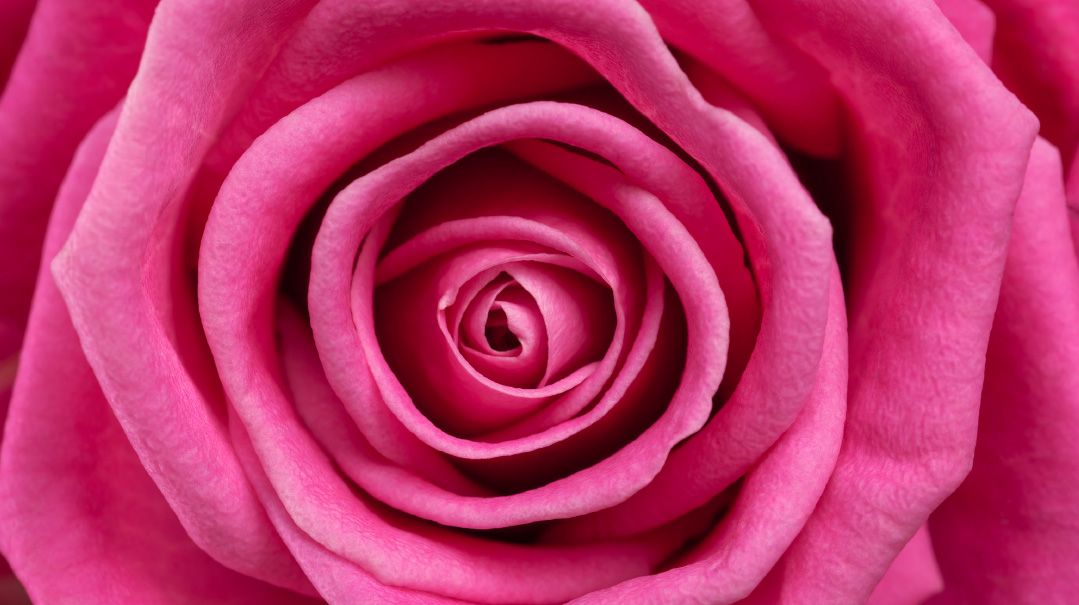A Rose by Any Other Name

“Seriously, Ma, couldn’t you find someone to name me after?”

The first time I had to do a name report for school, I panicked. Mimi was named for her great-somebody-or-other, Esther had stories galore about her namesake, and me? I was in trouble.
I was born the day after Shavuos, and in keeping with the season, was named Shoshana Rus.
Aha.
So, everyone was named for someone, and they could write these beautiful essays about the “very special person” they were named for. Not me.
Even a feeling would have been better: “My parents were so grateful when I was born, and that’s why my name is Yehudis Tehilla Bracha Tova Shira.” But no, I had to be named for… flowers? Really?
This angst resurfaced all through elementary school. Sometimes I thought about making it up: I could write a beautiful essay about my great-grandmother Shoshana (was anyone in Warsaw or Pultusk named Shoshana in 1902?) who was a big tzadeikes and headed the women’s chevra kaddisha and married off poor brides.
Or maybe Bubby Shoshana was from the American side, and she slaved away in sweatshops, sewing buttons all day, putting away her pennies to pay yeshivah tuition, and look! She was zocheh to generations of bnei Torah. The End.
But alas, it always came back to the flowers. “I was born in the springtime, the day after Shavuos. My parents chose the name Shoshana, a rose, like the beautiful flowers that adorned Har Sinai….”
Ho-hum.
I wanted a “very special person” to write about, like my sisters did.
Forget the reports and essays, I used to think bitterly. There was something grounding and empowering about being named after someone from your family’s history. My brother was named for my father’s rebbi and always felt a strong connection, as well as a sense of responsibility, because he bore the name of such a tzaddik.
I always felt there was a certain bond between my grandparents and the grandchildren who carried the names of their parents. Names and their origins held weight in our family, but somehow, I was skipped over in the you’re-so-lucky-to-be-named-for-Bubbe-Draizel-Lupke jackpot. I got to be a rose, and hey, did I know that Bnei Yisrael is compared to a rose?
It only got worse when I went to a friend’s house one Sunday, and we were making tissue-paper flowers. Her mother, a die-hard linguist, sternly informed me that a rose was a vered; shoshana was a lily. Oh, no. If I didn’t have enough of an identity crisis! Now I was a lily? I didn’t even know what a lily looked like, but I just knew I didn’t want to be one.
I went running to my big sister in shock and horror: my whole life, all 11 years of it, had been a lie. I was a rose, like Klal Yisrael, and now this woman claimed that my name should be Vered?
“We speak Lashon Kodesh,” my sister stated with authority. “In Shir Hashirim, a shoshanah is a rose. Your name means rose. Don’t listen to her.”
Phew.
Then came the Rus issue. Oh, was that a trigger topic. My friends knew never — never — to acknowledge that name. My parents went and put “Ruth” on my birth certificate because my mother didn’t like the way “Rus” looked in English.
“What is that?” she’d say. “Rooos? Ruhsss? Ruth makes the most sense.”
To her, maybe. Not to a fifth-grade Bais Yaakov girl. And if she was picking a name from Megillas Rus, what was wrong with Naami? I looooved the name Naami. And there were plenty of Naomis, Nomis, and Numis to go around. It was normal.
Rus just wasn’t.
And so it went. I tried to avoid anything that had to do with namesakes. Until suddenly, one day — I’m not sure exactly when; maybe it was in high school, maybe even later — the topic came up yet again.
“Seriously, Ma, couldn’t you find someone to name me after?”
“What are you talking about?” my mother retorted. “You were named for Blima, Baba’s sister! Of course you were named for someone!”
Come again?
“Blima?” My face squinched in confusion. “Since when?”
I knew all about Blima. Blima was my grandmother’s first cousin — their mothers were sisters. Both of Blima’s parents passed away in the Spanish Flu epidemic shortly after World War I, and Baba’s newly wed parents “adopted” Blima. She was the only sister Baba ever had, and they loved each other dearly despite the large age gap. And suddenly… I was named for her?
“Tatty didn’t like Blima,” said my mother, “so we turned it into Shoshana. But you were named for her!”
This was news. After all these years, history was being rewritten, and I was actually named for someone. I’d take what I could get!
I called my grandmother right away. “Baba,” I said excitedly, “was I named Shoshana as a Hebrew version of Blima? For your cousin?”
Baba was thoughtful for a few moments. “I really don’t remember,” she said doubtfully, but then warmed to the idea. “But maybe. Blima is a flower. Shoshana is a flower. Yes, okay, Shoshana is for Blima!”
And just like that, I was named for someone. And for the next 25 or so years, it became a fact in Baba’s mind. “You’re my Blimale,” she’d say. “Shoshana is a Blima — for my cousin,” she’d remind me.
Having my grandmother repeat how I was her Blimale, and seeing how much pleasure it gave her for the next few decades, was a beautiful feeling. Not only that, but over time it didn’t seem so bad to be named for a Yom Tov. I even may or may not have given a child or two a name based on inyanei d’yoma, and I love their names. So do they.
And as for Rus… well, growing up helped. Learning Megillas Rus in depth and discovering more about who Rus was certainly changed my feelings toward my name. Eim shel malchus ain’t a half-bad legacy, I’d say.
I’m thinking I might even be ready — finally — to write that name report.
(Originally featured in Family First, Issue 742)
Oops! We could not locate your form.







